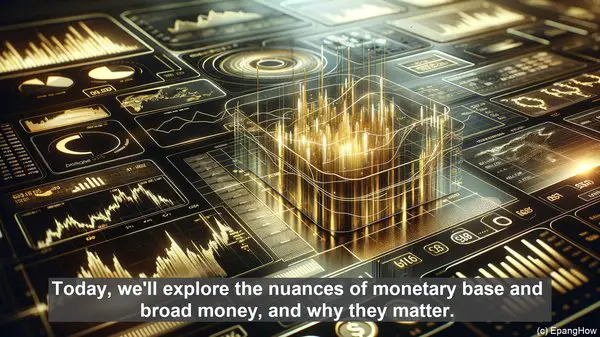Introduction: The Foundation of the Economy
Hello everyone! Welcome to our article on the difference between monetary base and broad money. When we talk about the economy, money is at its core. It’s the lifeblood that keeps everything flowing. But not all money is the same. There are different forms, and each has its own role and impact. Today, we’ll explore the nuances of monetary base and broad money, and why they matter.

Defining Monetary Base: The Bedrock
Let’s start with monetary base. Think of it as the foundation of the entire money supply. It consists of two key components: currency in circulation, which is the physical cash we use daily, and reserves held by banks at the central bank. These reserves are like the banks’ savings accounts, ensuring they have enough to meet their obligations. The central bank, in turn, has the authority to create or destroy this base money, making it a crucial tool in monetary policy.
Broad Money: The Wider Picture
Now, broad money is a broader concept. It encompasses not just the monetary base, but also various types of deposits in the banking system. These include checking accounts, savings accounts, and even certain types of investments. In essence, it’s the money that’s readily available for spending and investment by individuals and businesses. Broad money is influenced not only by the central bank’s actions but also by the lending and borrowing activities of banks and the public.
The Significance of the Monetary Base
The monetary base plays a crucial role in the economy. By adjusting the base, the central bank can influence the overall money supply, and thus, the level of economic activity. For example, during times of economic downturn, the central bank may increase the base to encourage lending and stimulate spending. On the other hand, if inflation becomes a concern, they can reduce the base to tighten the money supply and curb excessive spending.
Understanding Broad Money’s Impact
While the monetary base sets the stage, it’s the broad money that takes center stage in the economy. When individuals and businesses have access to credit and ample funds, they can make investments, expand operations, and drive economic growth. Conversely, if credit becomes scarce or the money supply tightens, it can lead to a slowdown. This is why monitoring and managing broad money is crucial for policymakers and economists.

